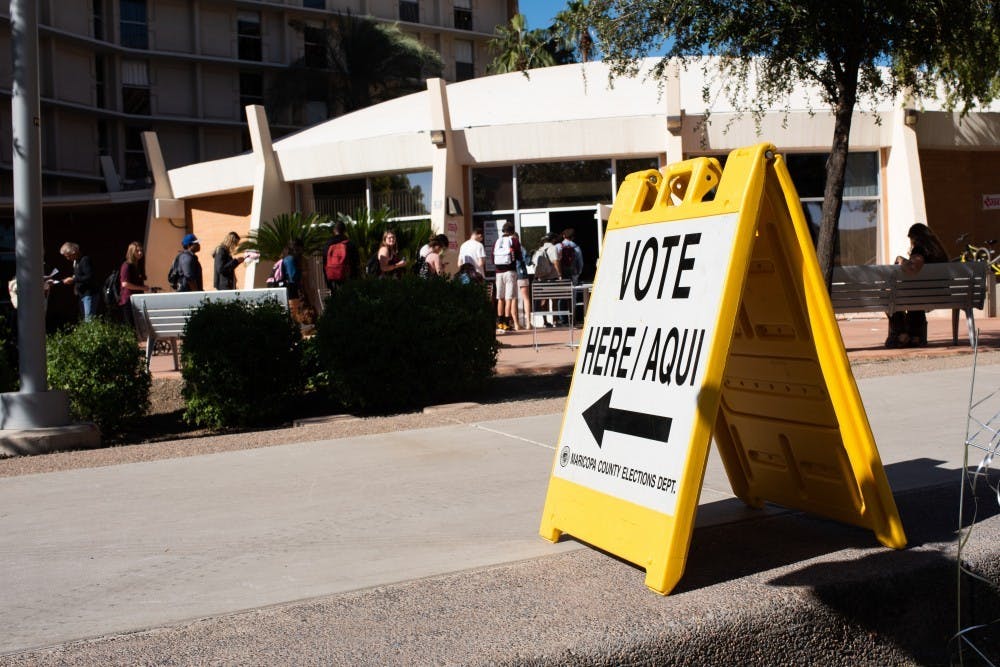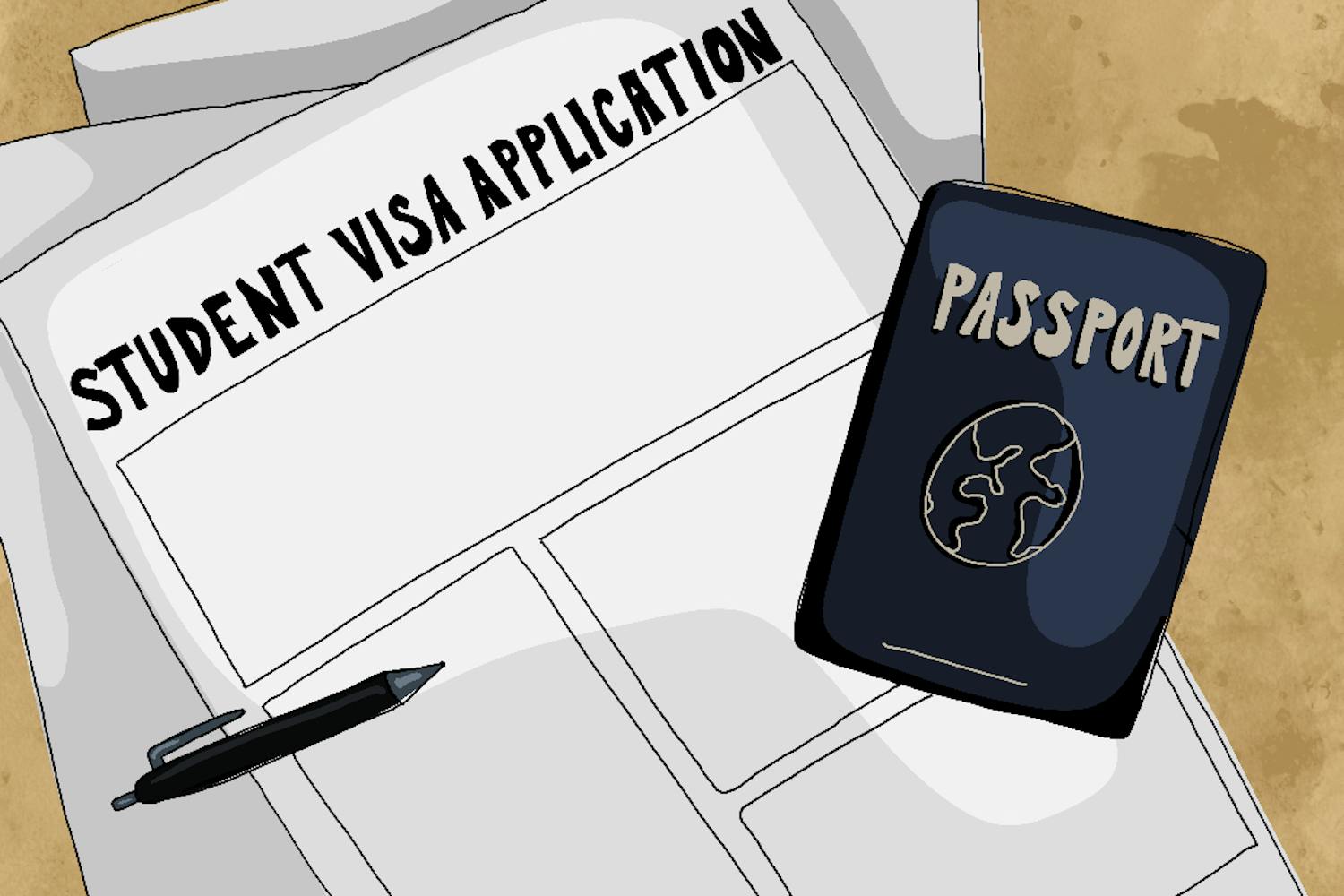As Arizonans head to the polls next month, numerous new voting laws will be taking effect that may prevent residents from freely exercising their right to vote.
Arizona state legislators considered over 100 voting and election laws during the 2022 legislative session. Most of those signed into law officially went into effect on Sept. 24.
Among the most noteworthy of the bills passed was House Bill 2492, which requires "satisfactory evidence of citizenship" for voter registration. The bill has proven to be highly controversial, with the Department of Justice filing a lawsuit against the state, saying the bill violates the National Voter Registration Act of 1993.
"For registering for federal elections, all you need to do is certify under penalty of perjury that you are a citizen," said Stefanie Lindquist, a professor of law and political science at ASU. "So there's no proof of citizenship — documentary proof of citizenship — that needs to be provided when you register to vote for a federal election."
As such, according to Lindquist, the Department of Justice argued that “Arizona can't impose additional identification requirements beyond what federal law requires because federal law supersedes state law." This argument is backed by a 2013 Supreme Court case that decided the NVRA pre-empted state requirements for proof of citizenship.
The court ruled, as Lindquist added, that if states had evidence to show someone was not a citizen, they could use that evidence to disallow them from voting.
The Arizona Student Association, a nonprofit dedicated to fighting for education in Arizona, is among the local groups that oppose the recent laws. Cesar Aguilar, executive director of the ASA, said it's confusing that lawmakers have decided to implement this bill.
“They're saying they're tackling an issue that doesn't even make sense," Aguilar said. "There hasn't been proof that a non-citizen registered to vote and voted in Arizona. We know the demographics of what Arizona looks like, so it's a specific target on who they're targeting and they're just making it harder on people to be able to vote."
HB 2243
The 2013 Supreme Court decision allowed state legislators to pass another controversial bill — HB 2243. It allows county recorders to compare those registered to vote in their county with the Systematic Alien Verification for Entitlements Program to confirm their citizenship if they have a suspicion that a voter is not a citizen.
Both bills are the subject of a lawsuit by various voting rights and tribal organizations against Arizona Secretary of State Katie Hobbs and Arizona Attorney General Mark Brnovich. The plaintiffs claim that both bills "impose a host of arbitrary and discriminatory burdens on eligible Arizona voters in violation of the United States Constitution, the Civil Rights Act of 1964 (CRA), the National Voter Registration Act (NVRA), and the Voting Rights Act of 1965."
Angel Palazuelos, a Dreamer studying biomedical engineering at ASU, said he thinks voters should focus on what's coming up on the ballot.
"The best that we can do is encourage voters and educate our community to let them know what's going to be on the ballot and what it means to us by either sharing our personal stories or simply how we've been doing now with Proposition 308," Palazuelos said.
READ MORE: Dreamers at ASU say Proposition 308 would expand access to higher education
On Sept. 8, a district court judge granted an injunction on the bill that allows county recorders to check citizenship status, guaranteeing that no action could be taken on the bill’s provisions and that the bill won’t go into effect this November. The bill requiring proof of citizenship for voter registration was not included in this injunction as its provisions don’t go into effect until Jan. 1, 2023.
HB 2237
House Bill 2237 will also be in effect, prohibiting same-day voter registration. Though Arizona did not have same-day voter registration before the passage of this bill, the new law outlaws it. Abigail Salman, USG West vice president of policy and an Andrew Goodman fellow, said the law could negatively impact students.
"Not everyone has the accessibility to know when the dates are," she said. "It purposefully limits the number of voters who are allowed to vote."
James Tucker, senior special counsel in the Voting Rights Project at the Lawyers’ Committee for Civil Rights Under the Law, agreed that college students will be disproportionally affected because of their voting habits.
"18- to 25-year-olds historically have the lowest participation rates," Tucker said. "That's only likely going to help suppress the student vote."
"If you're a student, are you gonna wait in line for four hours or five hours to check in and have your ballots accepted?" he added.
SCR 1012
Finally, Senate Concurrent Resolution 1012 will be presented to voters on the ballot. If passed, it will require early voters to include one of either a driver’s license number, state identification number, social security number, or voter identification number with a signed early ballot affidavit.
Many of these measures were implemented in response to false claims of widespread election fraud and officials’ denial of election results during the 2020 elections.
"We should be deeply proud of our election system, that the percentage of fraud is negligible," Lindquist said. "My fear is the human factor, in the sense of state officials choosing not to certify an election for their own reasons."
Edited by Reagan Priest, Wyatt Myskow and Grace Copperthite.
Reach the reporter at rchatty@asu.edu and follow @rishabchatty on Twitter.
Like The State Press on Facebook and follow @statepress on Twitter.

Rishab is a Politics Reporter at the State Press and a junior studying Political Science. He is also an assistant director with the Crane Center for Mass Atrocity Prevention and an assistant editor for the Realist Review.




